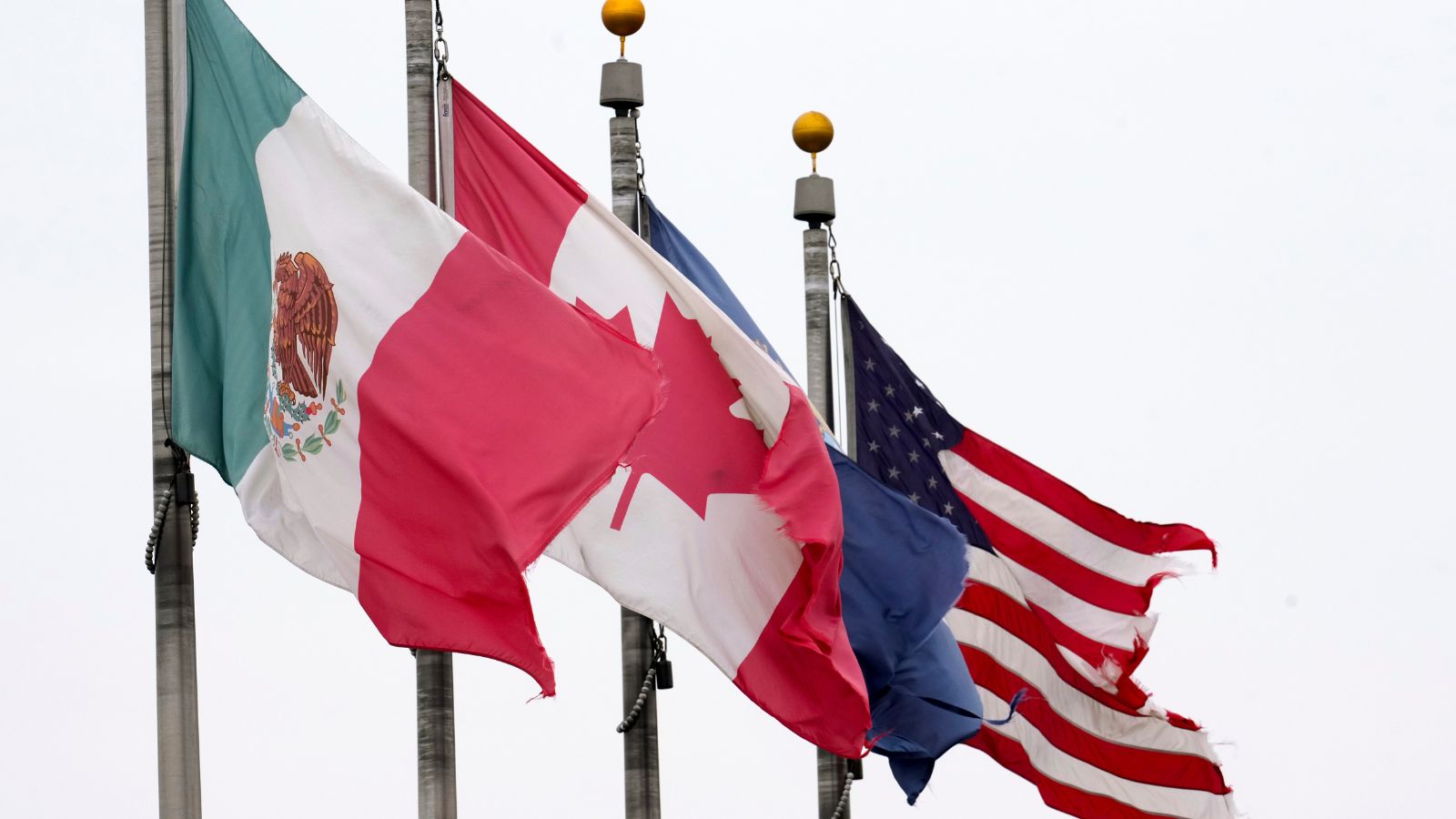Stay updated with the latest - Click here to follow us on Instagram
US-Mexico tariff negotiations: What are tariffs and how do they work?
Governments use tariffs for various reasons, including protecting sensitive sectors like agriculture and manufacturing, or addressing trade imbalances.
 Trump’s tariffs on Canada and China were set for Tuesday, but deal stability remained uncertain. (AP photo)
Trump’s tariffs on Canada and China were set for Tuesday, but deal stability remained uncertain. (AP photo)US President Donald Trump and Mexican President Claudia Sheinbaum announced that their planned tariffs would be put on hold for a month to allow time for further negotiations, reported AP. This follows a call between Trump and Sheinbaum.
Trump’s tariffs on Canada and China were still set to take effect on Tuesday, but questions remained about the stability of any agreements and whether the move signaled the start of a larger trade war. Trump has pledged to impose additional import taxes in the future.
But what exactly are tariffs?
Tariffs are taxes or duties imposed by a government on imported goods and services, aiming to make foreign products more expensive than locally produced goods. This not only encourages consumers to buy domestic products but also serves as a protective measure for local industries against foreign competition.
Additionally, tariffs can help governments raise revenue.
How do tariffs work?
The mechanics of tariffs are simple: when goods cross into a country, the government charges a fee.
These fees can be either a percentage of the goods’ value (ad valorem tariffs) or a fixed amount per unit of goods (specific tariffs). Tariff rates depend on the product, its origin, and any trade agreements between the countries involved.
Governments use tariffs for various reasons, including protecting sensitive sectors like agriculture and manufacturing, or addressing trade imbalances. However, tariffs can also lead to economic tensions. In some cases, countries retaliate by imposing their own tariffs, sparking trade disputes or even trade wars, as seen in recent tensions between the US and China.
Impact on consumers and the economy
For consumers, tariffs often mean higher prices for imported goods, which can lead to inflation. While they may benefit local industries by limiting foreign competition, the broader economic impact can be mixed.
Several economists outside the administration have cautioned that the tariffs would lead to higher prices and slow down growth. Trump himself acknowledged that there would be some short-term discomfort, despite having campaigned the previous year on a promise to control inflation, reported AP.
(With inputs from BBC, NBC)
- 01
- 02
- 03
- 04
- 05































